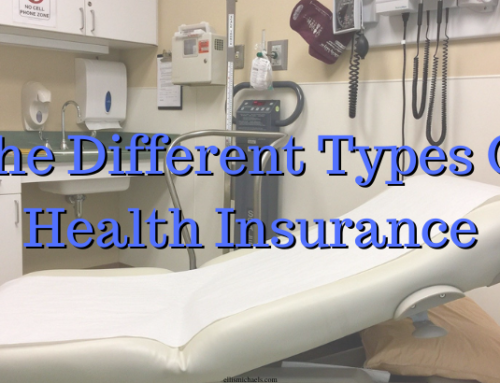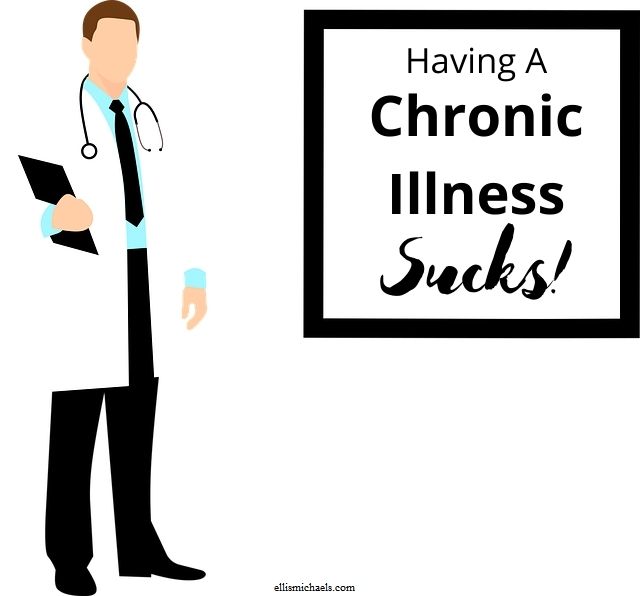We all have different needs. If you took ten people with the same diagnosis, you’d likely find ten different sets of circumstances and ten different attitudes. That’s why it’s so important to find the right doctor for you.
That’s what we’ll be discussing in this article. We’re going to look at how to go about finding doctors and other medical professionals who are right for you.
Finding The Right Doctor For You
Table of Contents
If you’re living with a chronic illness, it’s incredibly important that you find doctors and other medical professionals who you like. Depending on your situation, you might be seeing a lot of them. Personally, I’ve been to dozens of doctors over the years in more than ten different specialties.
I was diagnosed with Behcet’s disease as a teenager over 20 years ago. Even as a teen, after being bounced around from doctor to doctor, it became clear to me how important doctor-patient relationships are. If you want to get the best care possible, you need to find doctors and other healthcare providers who are right for you.
The most important doctor that you’ll see is your primary care physician (PCP). This is the doctor who does your annual physical, deals with general medical problems, and coordinates your entire team of specialists. Most insurance companies require you to get a referral from your PCP to see a specialist. So, if you need to see a lot of specialists, you’ll likely be seeing a lot of your PCP as well.
That’s why it’s so important to find the right primary care physician. You want someone who understands not only your diagnosis, but you as a person. The last thing you need is a PCP who doesn’t care. Or worse: they don’t believe what you tell them. We’ll briefly go over what to look for in a doctor in a moment. But first, there’s something you should always keep in mind that a lot of patients seem to forget.
Your Doctor Works For You
That’s right! You’re paying him/her for a service. If you’re not happy with the service they’re providing, you have every right to go find another physician.
 There’s no reason why you have to stay with your current doctor. People switch doctors all the time and for all kinds of different reasons. If you feel like your doctor isn’t right for you, don’t be afraid to find another one.
There’s no reason why you have to stay with your current doctor. People switch doctors all the time and for all kinds of different reasons. If you feel like your doctor isn’t right for you, don’t be afraid to find another one.
I know it can be a huge pain to switch doctors. But sometimes it’s necessary. If you feel like your doctor doesn’t listen to you, doesn’t understand your diagnosis, could be providing better service, or you’re unhappy with him/her in any way, you should consider looking for a new one.
So, if you do decide to start looking for a new doctor, what should you be looking for?
What To Look For In A Doctor/Provider
When I was a kid, I thought that all doctors were smart and caring professionals. But by the time I was in my late teens, it became obvious this wasn’t the case. I’d met some smart, caring doctors. But I’d also met a lot of arrogant, rude, ignorant, unprofessional and, in some cases, downright incompetent doctors, too.
 This led me to start thinking about what makes a good doctor at an early age. I was diagnosed with Behcet’s disease when I was just 16 and had already been to over a half-dozen specialists. A couple of them were wonderful. But the rest were mediocre at best. It really forced me to put a lot of thought into doctors: what makes a good one, what makes a bad one, where to find the good ones, how to avoid the bad ones, etc.
This led me to start thinking about what makes a good doctor at an early age. I was diagnosed with Behcet’s disease when I was just 16 and had already been to over a half-dozen specialists. A couple of them were wonderful. But the rest were mediocre at best. It really forced me to put a lot of thought into doctors: what makes a good one, what makes a bad one, where to find the good ones, how to avoid the bad ones, etc.
Doctors come in more flavors than Ben and Jerry’s. If you’ve been living with a chronic illness for a long time, you’ve likely met some doctors who were nice and some who were mean. Some who were smart, others not so much. Some who were always on time, others who were always late.
There is a lot of variety when it comes to doctors. After all, they’re people, too. Doctors have the same range of personality traits as anyone else. And there are a few key traits that you should look for in a doctor.
The two most important personality traits to look for in a doctor are competence and compassion. You want a doctor who, first and foremost, knows what s/he’s doing. But just as important as competence, you want a doctor who is also compassionate. These two qualities are, in my opinion, more important than anything else when it comes to choosing a physician or other healthcare provider.
2 Qualities Every Great Doctor Has
There are a number of qualities to look for in a healthcare provider. But there are two that are more important than all the others. We’ll look at some of the other things to look for in a doctor later. But right now let’s look at these two absolutely necessary qualities.
Competence
The most important characteristic a doctor can have, above all else, is competence: in his or her chosen specialty and in medicine in general. Competence comes before everything else. It doesn’t matter how nice or cool a doctor is. If she doesn’t have a rock-solid understanding of her discipline, the rest doesn’t matter.
 You would think or at least hope all doctors would be competent. Unfortunately, my experience (and hearing countless stories from other chronic-illness patients) has taught me otherwise. Now, I’m not talking about doctors who make the occasional minor mistake. We all make mistakes and doctors are no different. I’m talking about doctors who really don’t know what they’re doing.
You would think or at least hope all doctors would be competent. Unfortunately, my experience (and hearing countless stories from other chronic-illness patients) has taught me otherwise. Now, I’m not talking about doctors who make the occasional minor mistake. We all make mistakes and doctors are no different. I’m talking about doctors who really don’t know what they’re doing.
If you’re not a medical professional yourself, it can be hard to gauge just how competent a doctor is. Whenever I go see a new provider, I look into their educational background, work experience, publication history (if any), and read online reviews before stepping foot in their office. While these things don’t guarantee a doctor’s competence, they can give you some solid clues.
If a physician got her doctorate of medicine (M.D.) from Harvard University, there’s a good chance she’s more competent than a doctor who got his degree from an offshore medical school in the Caribbean. If a doctor has 25 years of experience working in well-known hospitals around the country, she’s probably a lot more competent than a doctor who’s resume shows only a few years at some rural hole-in-the-wall clinic.
These are just a couple examples of ways to gain insight into a doctor’s competence level. And they’re just clues, not the whole picture. I’m sure there are inexperienced, Caribbean-educated doctors out there who are much more competent than many of their experienced, Ivy-League counterparts. But the more you learn about a doctor, the better you’re able to tell how competent they are.
Even more than the average patient, those of us living with chronic medical conditions need our healthcare providers to be competent. We need them to understand our diagnoses and stay up to date with the latest research. Competence isn’t the only quality to look for in a doctor, but it’s by far the most important.
Compassion
Right behind competence is compassion. If you’re perfectly healthy and just go to your primary care physician (PCP) once a year for your annual physical, this trait really isn’t that important. But for those of us living with chronic conditions, especially invisible illnesses, it’s incredibly important to see compassionate doctors.
Compassion is the awareness of other people’s suffering and a desire to alleviate it. If you’re diagnosed with an invisible illness (sometimes called a hidden illness), you want a doctor who understands that you’re suffering. Just because there are no obvious physical signs doesn’t mean you can’t be in pain, anxious, depressed, or otherwise uncomfortable. Some examples of diagnoses that are considered hidden illnesses:
- Chronic Fatigue Syndrome (CFS)

- Cystic Fibrosis
- Traumatic Brain Injury
- Many Psychiatric Disorders
- Migraines
- Fibromyalgia
- Rheumatoid Arthritis
- Lupus
- Multiple Sclerosis (MS)
- Lyme Disease
Those are just a few of the many diagnoses that often show no obvious physical symptoms. My own diagnosis, Behcet’s disease, often presents as an invisible illness. Although, the massive varicose veins in my legs and abdomen are anything but invisible.
Compassionate doctors care about their patients and want to help them. Just like with competence, you’d think or at least hope that all doctors were compassionate. But this simply isn’t the case. Don’t get me wrong: many doctors are. But there are a lot of not-so-caring physicians out there. There are even some downright sadistic ones. Fortunately, they seem to be in the minority.
For years, I was depressed, anxious, and in pain. When I was in my early 20’s, I started seeing a psychiatrist: Steven Karlin, M.D. At first, I almost stopped seeing him because he was late – sometimes really late – for every appointment. But then I realized why he was always late. Even though appointments were supposed to be 20 minutes long, he took as much time as he needed with each patient. And he did it because he cared.
Dr. Karlin is one of the best examples of a highly competent and compassionate healthcare provider I can give. When I was going through a rough patch, he’d talk to me for up to an hour even though we were only scheduled for 20 minutes. Now that’s compassion. Dr. Karlin didn’t do it because he had to: he did it because he cared. Sometimes I’d be in his waiting room for 90 minutes before he got around to seeing me. And every time, it’d be well worth the wait.
Seek out competent doctors who are also highly compassionate. When it comes to finding the best providers, these two qualities are the magic combo. Many doctors are one or the other. But to get the level of care needed to live the best life possible, you’ll want to find healthcare providers who not only know what they’re doing medically, but also care about you as a person.
Other Qualities To Look For In A Doctor
While compassion and competence are absolute necessities, there are other traits to look for in a doctor. Here are just a few of them.
Trust
This almost goes without saying, but I’m going to mention it briefly. If a doctor shows you that she’s both competent and compassionate, you’re most likely going to trust her. But will she necessarily trust you?
 You want to not only be sure that you can trust your doctor, but that he trusts you, as well. I had a doctor one time that refused to believe something I’d repeatedly told him over and over again. He even said he’d stop treating me if I continued to lie. So, after going back and forth with him for months, I marched into my monthly appointment and slammed a huge stack of studies and case reports that verified what I’d been telling him down on his desk.
You want to not only be sure that you can trust your doctor, but that he trusts you, as well. I had a doctor one time that refused to believe something I’d repeatedly told him over and over again. He even said he’d stop treating me if I continued to lie. So, after going back and forth with him for months, I marched into my monthly appointment and slammed a huge stack of studies and case reports that verified what I’d been telling him down on his desk.
That doctor (who I won’t name) would eventually admit that I’d been telling him the truth the entire time. But even though he now trusted me, I realized that I couldn’t trust him. I couldn’t trust him to believe me in the future without having to bring a pile of evidence with me. So I told him exactly that. And then I told him I wouldn’t be needing his services any longer.
This doctor had more degrees, diplomas, and board certifications all over his walls than I’d ever seen before. But without trust, all those credentials go out the window. Make sure you can trust the doctors you see. And just as importantly, make sure they trust you.
Connections/Affiliations
Do you know what hospitals, clinics, practices, universities, and professional associations your doctor is affiliated with? Do you know about your doctor’s past affiliations?
These might not seem like super-important questions and, on the surface, they’re not. But who your doctor is and has been affiliated with can be good to know. The more connected a healthcare provider is, the better they’ll be able to help you.
 There was one time a few years ago that I needed to get an ultrasound. I knew I had blood clots in my leg and the only appointment I could get with my primary care physician (PCP) was at 4:30PM on a Friday. Since the radiology department in my PCP’s building would be closing really soon, I thought for sure that he’d send me to the emergency room to sit and wait for hours until someone could do the ultrasound there.
There was one time a few years ago that I needed to get an ultrasound. I knew I had blood clots in my leg and the only appointment I could get with my primary care physician (PCP) was at 4:30PM on a Friday. Since the radiology department in my PCP’s building would be closing really soon, I thought for sure that he’d send me to the emergency room to sit and wait for hours until someone could do the ultrasound there.
As it turned out, my PCP had a friend that worked in the radiology department just a couple floors down from his office. He made a call and I could tell the radiologist was reluctant at first, but she finally agreed to slip me in before she left for the weekend.
While this isn’t something you need to look for in a doctor, it definitely can’t hurt. Having a well-connected, well-liked, well-respected doctor can really come in handy sometimes.
Friendliness/Likability
You’d think that this one would be included with competence and compassion as traits you need to look for in a doctor. But I’ve actually found it to be less important than you might think.
Don’t get me wrong. It’s better to have a friendly doctor than an unfriendly one. You might think that friendliness automatically goes hand in hand with compassion – and it often does. But not always. Just because a doctor is compassionate doesn’t mean that she’s necessarily likable and easy to get along with.
 I’d rather have a doctor who knows how to go about treating whatever ails me (competence) than one who is easy to get along or even overly compassionate. A good example of this would be the ophthalmologist who first diagnosed me with Behcet’s disease all those years ago.
I’d rather have a doctor who knows how to go about treating whatever ails me (competence) than one who is easy to get along or even overly compassionate. A good example of this would be the ophthalmologist who first diagnosed me with Behcet’s disease all those years ago.
I won’t name his name here, but this particular doctor was rude, abrasive, and condescending to both me and my mother. To put it mildly, he was not friendly or likable. He wasn’t even very compassionate. But what he lacked in friendliness, he made up for in competence. I’d been to several doctors by that point and he was the only one who could figure out what was wrong with me.
I won’t sugarcoat it: the guy was an asshole. But he was the asshole who finally put a name to all the strange, embarrassing, and painful symptoms I’d been having for years. It would’ve been nice if he was friendlier, sure. However, I’ll take competence over friendliness any day.
But you don’t have to choose. You can find doctors who are competent, compassionate, trusting, trustworthy, well-connected, and likable. They’re definitely out there. I’ve found a few of them myself. With the internet, it’s never been easier to find great doctors who are right for you.
Avoiding Bad Doctors
I’ve told this joke before and I’ll tell it again because there’s so much truth to it:
Q: What do you call the guy who graduated dead-last from his class in medical school?
A: Doctor.
Whether a doctor was at the top of her class or just barely got through med school, either way, now they’re a licensed physician. In other words, there are highly competent doctors and there are doctors who aren’t so great. As important as it is to find good doctors, it’s just as important to avoid bad ones.
But how do you know if a doctor is bad? And are there any ways to find out without having to meet them? Fortunately, there are.
The internet makes finding good doctors and avoiding bad ones much easier than it has been in the past. In the next section, we’ll go over how and where to look for a doctor. You can use the same methods to find good doctors and avoid bad ones. So, how do you know if a doctor isn’t so great?
 The easiest way to know is to read reviews left by current or former patients. There are several different sites and apps where patients can leave detailed reviews of their doctors. We’ll talk about some of them in the next section. But if a doctor has ten one-or-two-star reviews and a number of comments saying how awful they are, there’s a good chance they’re not one of the good ones.
The easiest way to know is to read reviews left by current or former patients. There are several different sites and apps where patients can leave detailed reviews of their doctors. We’ll talk about some of them in the next section. But if a doctor has ten one-or-two-star reviews and a number of comments saying how awful they are, there’s a good chance they’re not one of the good ones.
Another way to know if a doctor is probably a bad choice is by looking into their educational and professional history. Where did they go to medical school? There’s a big difference between the education a doctor gets at, say, Harvard University and some hole-in-the-wall medical school in the Caribbean. Make sure your doctor got a proper medical education from an accredited and well-respected institution.
And lastly, see what professional experience a doctor has. Where do they currently work? Is it a nice, professional building or do they practice in a strip mall? Where have they worked in the past? Have they been practicing in their specialty for many years or only short period of time? Has the doctor ever been sued for malpractice or any other type of medical or professional misconduct?
If a doctor’s office is in a strip mall, she’s been sued five times, has only been practicing in her specialty for six months, and she got her degree from a school in some country you’ve never heard of, odds are she’s not a great doctor. You should avoid doctors who throw up several of these red flags.
Where To Look For A Doctor
Now that you know what to look for in a doctor and just as importantly what to avoid, we can discuss where to look for one. It’s usually a good idea to apply as many of these methods as possible.
 The first place to look for a new doctor is through your current doctor. If you like your primary care physician and need to see, say, a gastroenterologist, ask your PCP if there’s someone they’d recommend. Doctors will often recommend other doctors they know and like.
The first place to look for a new doctor is through your current doctor. If you like your primary care physician and need to see, say, a gastroenterologist, ask your PCP if there’s someone they’d recommend. Doctors will often recommend other doctors they know and like.
But just because your PCP recommends someone, doesn’t mean you have to go see them. You should still do your own research. Doctors often try to refer you to other doctors who are close, personal friends of theirs. And sometimes their friend-blinders make it hard for them to see that who they’re referring you to isn’t that great of a doctor.
In addition to asking your doctor if there’s someone in particular they’d recommend, you should also ask your friends and family. If your friends know about your medical history and you’re comfortable talking to them about it, ask if there’s any doctors they’ve been to that they really liked. But, just like with getting recommendations from your doctor, you should still do your own research (DYOR).
So, how do you DYOR? By going online and seeing what you can find out. There are a number of websites and apps that make finding the right doctor easy. While there are others, we’re going to talk about a few of the largest, most-popular ones.
Healthgrades is a website and app that allows you to search for a doctor or other healthcare provider by name, specialty, diagnosis, and/or location. It provides lots of great information including work experience, where they got their education, what institutions they’re affiliated with, professional certifications, malpractice claims (if any), what insurances they take, and a lot more.
 But the most valuable thing about Healthgrades and similar sites is that patients can rate and review their healthcare providers. You can read what others have to say about any doctor you look up. If a provider has lots of five-star ratings and people are saying nothing but good things about them, you’ve likely found a good one. If it’s all one-and-two-star ratings and nothing but bad reviews, you should avoid seeing that provider.
But the most valuable thing about Healthgrades and similar sites is that patients can rate and review their healthcare providers. You can read what others have to say about any doctor you look up. If a provider has lots of five-star ratings and people are saying nothing but good things about them, you’ve likely found a good one. If it’s all one-and-two-star ratings and nothing but bad reviews, you should avoid seeing that provider.
Healthgrades is probably the most widely used website and app for rating and reviewing doctors, but there are others. Vitals.com is another popular website. Like Healthgrades, you can look up any provider and find tons of useful information about them including reviews.
There are also a number of newer apps for both Android and iOS where you can rate and review doctors. One of the more popular apps is Zocdoc. Not only can you read reviews and get lots of info about a provider, you can also schedule in-office appointments and even video chats from home.
With the internet, there’s no shortage of places to get all the information you need to find good doctors and other healthcare providers. These are just a few, but there are plenty of others. Go online, check out the different providers in your area, see what people are saying about them, and take it from there. If someone sounds like they’d be a good fit for you, schedule an appointment.
Conclusion
For those of us living with chronic medical conditions, it’s especially important to find doctors and other healthcare providers who are right for us. We need a higher level of care than the average patient and should try to see the best doctors that we possibly can.
Do you like your doctor(s) and other providers? How did you find them? Please leave your answers in the comments section at the bottom of the page.
And if you’d like to learn more about my several decades of experience dealing with doctors, I wrote a book about living with a rare illness. It’s called Finding Happiness Through Pain and Embarrassment: My Life With Behcet’s Disease – A Memoir and is available everywhere books are sold.
Join the Ellis Michaels mailing list to stay up to date with the latest news about chronic illnesses, recent articles and other publications, and more.







Leave a Reply